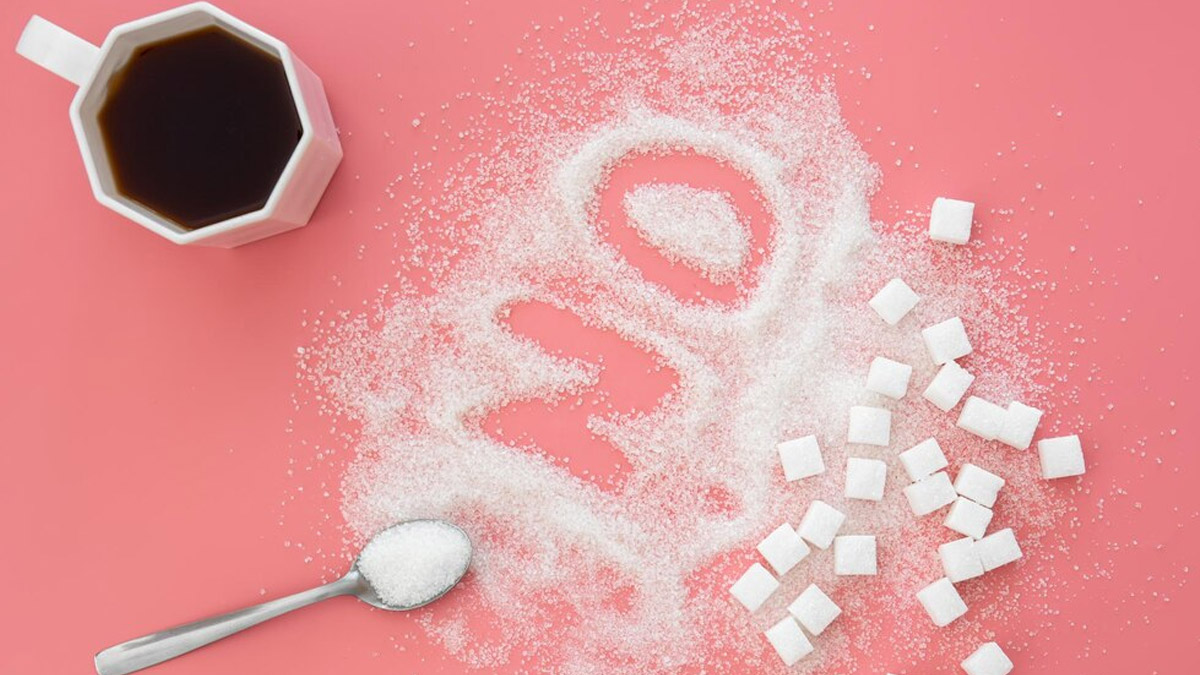
Bloating is a common gastrointestinal issue that many people experience at various points in their lives. It can result from unhealthy dietary habits, poor food choices, or underlying medical conditions. One significant dietary factor contributing to bloating, especially upon waking, is excessive sugar intake. According to Dr Pradeepta Sethy, Director - Gastroenterology, Medica SuperSpeciality Hospital, consuming too much sugar, particularly from processed foods or sugary drinks, can disrupt digestion and lead to feelings of fullness and discomfort. He explains the link in more detail and shares signs to watch out for.
Table of Content:-
Also Read: 5 Expert-Approved Techniques For Reducing Sugar Intake
Why Excessive Sugar Intake Can Cause Bloating

To understand how excessive sugar intake causes bloating, it is important to understand how sugar impacts digestive health in the first place. Dr Sethy explains that too much sugar consumption can disrupt the delicate balance of the gut microbiome, leading to an overgrowth of harmful bacteria. “This imbalance can cause inflammation, bloating, gas, and other digestive issues,” he says, adding that sugar can reduce the absorption of essential nutrients, further compromising gut health.
In severe cases, it may contribute to conditions like leaky gut syndrome and Inflammatory Bowel Disease (IBD).
Sugar malabsorption occurs when the body is unable to properly absorb certain sugars from the digestive system.
According to the doctor, certain types of sugar, such as fructose and lactose, can be poorly absorbed in the small intestine. While lactose is found in milk and dairy, fructose is found in fruits, honey, and some sweeteners. This undigested sugar then travels to the large intestine, where bacteria ferment it, producing gas as a by-product. This gas accumulation can cause bloating, abdominal discomfort, and other digestive issues.
A pilot study on 36 patients with abdominal bloating and gas-related symptoms found that 72.2% had sugar malabsorption. After being placed on a sugar-free diet, 81% reported improvement after one month, with 67% maintaining relief at 12 months.
Also Read: Sugar Detox: How Long Does It Take To Get Used To It
Signs You Feel Bloated Due To Excess Sugar Intake

Here are some signs that your bloating may be related to sugar consumption:
- Timing: Bloating occurs shortly after consuming sugary foods or drinks.
- Type of sugar: Bloating is more common with fructose (found in fruits and high-fructose corn syrup) and lactose (found in dairy products).
- Other symptoms: Bloating may be accompanied by gas, abdominal pain, diarrhoea, or constipation.
- Relief with sugar reduction: Reducing sugar intake often leads to a decrease in bloating symptoms.
When Should You Take Caution?
While much of the problems can subside if you just limit your intake of sugar and watch out for the quantity that you consume. However, certain circumstances should not be ignored, and people should take caution if:
- Symptoms are persistent and severe if bloating lasts for weeks or months and significantly impacts your quality of life.
- Symptoms are accompanied by other symptoms, such as unexplained weight loss, bloody stools, persistent nausea, vomiting, or difficulty swallowing.
- Dietary changes and Over-the-Counter (OTC) remedies aren't effective.
- A healthcare professional can accurately diagnose the underlying cause of your bloating and recommend appropriate treatment.
How To Limit Sugar Intake

The first step is to look for healthy alternatives. It may not be easy to give up on sugar immediately, but you can always switch up the sweetness to something healthier. Some examples include:
- Choose natural sweeteners like honey, maple syrup, or stevia in moderation.
- Be aware of hidden sugars in processed foods.
- Eat whole fruits as they provide natural sugars along with fibre, which aids digestion.
- Cook at home, as it allows you to control the amount of sugar added to your meals.
- Drink plenty of water to alleviate bloating.
Consult a healthcare professional for personalised advice on dietary changes to manage bloating.
Conclusion
According to the American Heart Association(AHA), the body does not need any added sugar to function healthily. This means that sugar that you get from natural sources is enough to fulfil your daily requirements. Excessive sugar intake can therefore disrupt your bodily functions and cause distress, including digestive issues like bloating. It is crucial that you keep your sugar intake to a minimum, and if you must, indulge in healthier alternatives.
Also watch this video
How we keep this article up to date:
We work with experts and keep a close eye on the latest in health and wellness. Whenever there is a new research or helpful information, we update our articles with accurate and useful advice.
Current Version